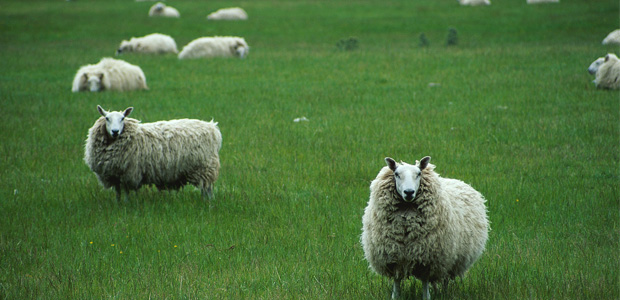Advertisement
Biotech News
Goat-Spider BioSteel Montreal-based Nexia Biotechnologies has inserted a gene from a spider into goats, in order to create “BioSteel” milk. The milk from the biotech goats contains a novel protein related to spider silk. The company plans to extract this protein to produce fibres (called BioSteel) for bulletproof vests. Nexia obtained exclusive right to patents … Continued

Goat-Spider BioSteel
Montreal-based Nexia Biotechnologies has inserted a gene from a spider into goats, in order to create “BioSteel” milk. The milk from the biotech goats contains a novel protein related to spider silk. The company plans to extract this protein to produce fibres (called BioSteel) for bulletproof vests. Nexia obtained exclusive right to patents resulting from the spider silk research.
About 150 biotech goats will be reared in holding pens in converted weapons-storage buildings at a former US Air Force base in Plattsburgh, New York. Will the goats have to endure any long-term side-effects due to the interaction of the foreign genes with other genes or with biological processes? No one knows.
Chr?en Admits Risks
Prime Minister Jean Chr?en recently met in France with French President Jacques Chirac to discuss France’s refusal of Canadian genetically engineered (GE) crops. After Chr?en expressed his opinion that GE crops were safe, Chirac explained that safety needs to be established not on opinion but on scientific research. Chr?en conceded that more research is needed to prove conclusively that GE crops are safe.
Brazil Refuses Crops
Brazilian port authorities are refusing shipments of GE Argentine corn. Two ships carrying 26,000 metric tons each of Argentine corn were recently turned away. In the port of Recife, 38,000 metric tons of Argentine corn belonging to Cargill were refused entry pending lab tests to determine whether it was genetically modified.
No Safe Planting Distance
The UK’s environment minister Michael Meacher admitted there is no absolutely safe planting distance to prevent the cross-pollination of GE crops with conventional crops. The current minimum planting distance for rapeseed (canola) is 49.2 metres. Organic farmers want buffer zones of at least 15 kilometres, the farthest distance a bee is likely to travel. Britain’s Soil Association is threatening to take legal action against the UK government if it does not act to protect organic farmers, who can lose their organic certification if their crops are found to contain genetically engineered organisms.
Sheep with Woman’s Gene
PPL Therapeutics, the UK firm that cloned Dolly, the sheep, inserted the DNA of a Danish woman into thousands of New Zealand sheep without her knowledge. From the sheep’s milk, the company is trying to extract a novel protein derived from human DNA, to create a pharmaceutical to market for profit. The DNA apparently came from a blood sample the woman gave in the 1980s. She was never told what her DNA was used for.
“People give blood and organs thinking they will be shared freely with other people,” says Dr Sue Mayer, director of GeneWatch. “They are given as a gift. Certainly most donors do not think their DNA will be patented, inserted into animals or bacteria and used to boost the profits of some company. Many people would find this morally objectionable.”
Basmati Lawsuit
The Indian government has launched a legal challenge in the United States against the American company RiceTec for patenting basmati rice, a staple food in India. The patent gives RiceTec control over basmati rice production in North America. Farmers have to pay a royalty to grow the rice and are not allowed to save seeds for the following year.
The rush to patent genetic resources has been proceeding at an alarming rate. This case may be the first time a government in a developing country has challenged an attempt by a US company to patent and thereby control the production of staple foods and crops.




